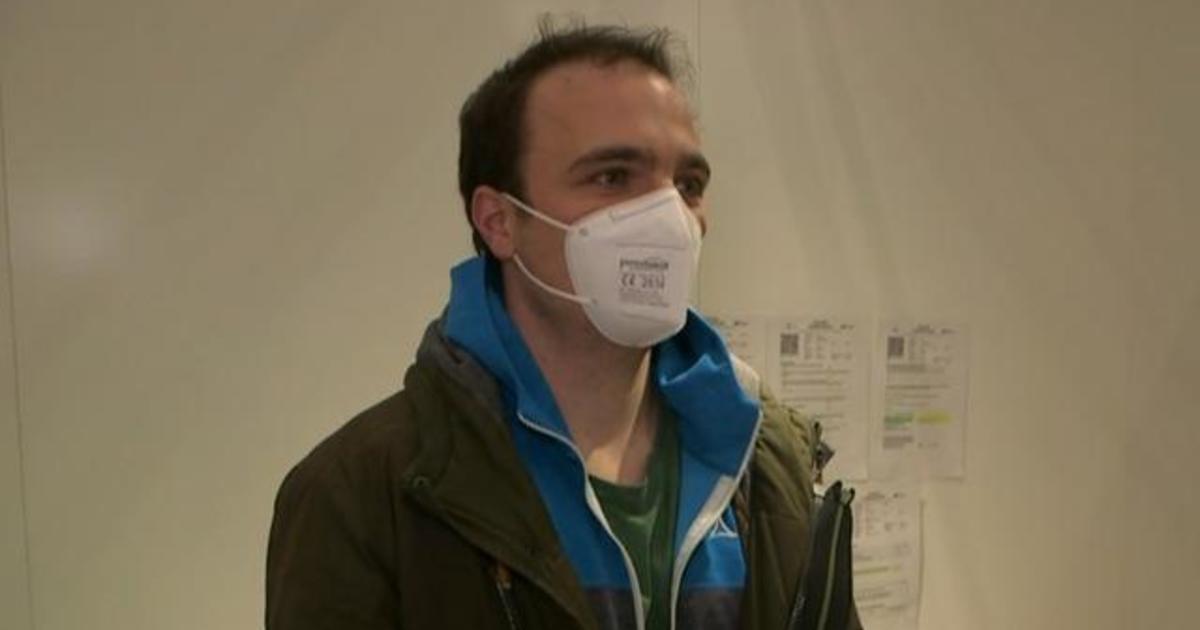But now that the offer has actually come for a shot of the AstraZeneca vaccine, Johannes admits he's "a little bit afraid."
"I thought I was getting the [Pfizer]-BioNTech vaccine, but now I heard there's the decision that I don't get it," he said. "I was really disappointed."
It's a scene playing out across Europe's most powerful country. Germany has already taken delivery of more than 1.4 million doses of the AstraZeneca drug, and they've been distributed to vaccination centers across the country like the one in Hamburg.
But polling suggests about half of Germans don't want it.
More broadly, the European Union, which organized the purchase of all vaccine doses collectively for its 27 member states, secured a whopping 400 million doses of the U.K.-developed vaccine.
Clinical trials suggested that the AstraZeneca formula was between 60% and 90% effective at preventing symptomatic COVID-19 infection — lower than the 95% efficacy that Pfizer/BioNTech reported in their trials.
Then Germany's national vaccine committee refused to approve the AstraZeneca for people over 65 years old, citing a lack of data from the trials proving it worked well on those older individuals.
The backlash was fast, significant, and it even spread outside of Germany to other major European countries, including France, where the vaccine was only recently cleared for use on older people.
Germany on Thursday appeared set to finally reverse course, as the national vaccine committee formally recommended that the government authorize the AstraZeneca shot for use in all adults, including to over-65s, bowing to pressure from senior doctors in the country.
But the damage was already done, and it could take time to correct. Many Germans simply don't trust the AstraZeneca vaccine — despite new, real-world data from the U.K. that suggests the shot is actually more effective than the Pfizer vaccine in preventing hospitalization — a stunning breakthrough, according to immunologist Thomas Jacobs.
"We have not a best and second best; we have two very effective and safe vaccines," he told CBS News, referring to the drugs approved for use in Germany. He said there could be a "little bit" of simple snobbery when it comes to Germans turning their nose up at the British-developed vaccine in favor of the Pfizer one, which was, after all, made in part by German firm BioNTech.
ALSO SEE: In big shift, Germany to give AstraZeneca shots to over 65s




Recent Comments